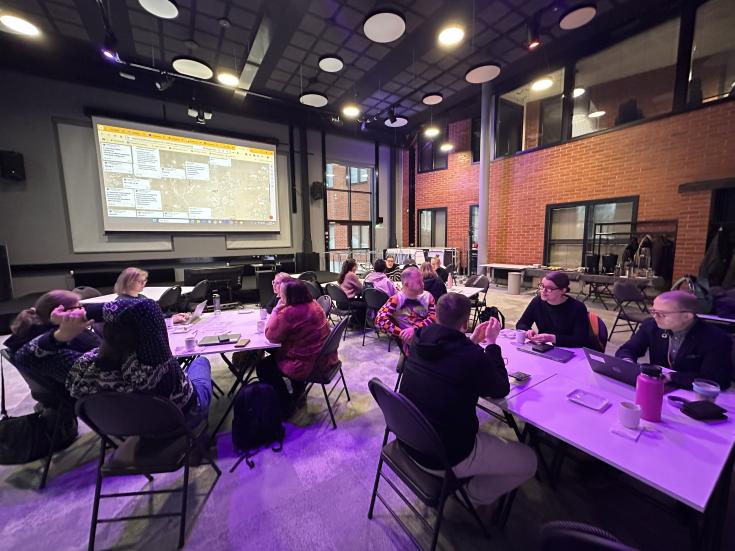Inclusion as a Building Block for the Future of Lapland

Inclusion, diversity and gender equality were highlighted as important building blocks of sustainable local economy of Lapland, Finland, by a working group formed by the stakeholders and representatives of three projects working on different topics, one of which was DEBUTING. The aim is now to bring the conclusions from this work into Lapland Agreement, the highest policy instrument in Lapland.
In Lapland, Finland, it is time to renew the regional strategy, called the Lapland Agreement. For team DEBUTING of Lapland, a big inspiration for the work has been Region Värmland from Sweden, where segregation and other challenges related to gender inequality and lack of inclusion have been fought with multiple good practices (e.g. Attraktionskraft Värmland) – something that would be beneficial in Lapland as well.
These good practices worked as an inspiration when DEBUTING, together with two other projects in Lapland, organized a workshop 14 January, to collect thoughts and ideas on what kind of future we wish for Lapland. This was followed by meetings and workshops, where the collected material was developed into common conclusions to be later proposed for the Lapland agreement. The key idea was, that working together the impact would be greater than if the work was done separately.
The group concluded that the foundation for sustainable local economy in Lapland is good quality life in all parts of Lapland. This is built on different elements, such as nature, good local services, communality and opportunities for leisure time activities. One of the most important ones is work, where diversity, inclusion and gender equality play vital roles in the quality of work life.
The group also saw, that of the key areas is supporting companies in social sustainability: when investing in diversity, gender equality and inclusion, the full potential of workforce can better be utilized. Simultaneously, people feel better at work.
The working group also paid attention to how responsibility and societal impact are perceived, as they should not be only goals set from outside but competitive factors for the companies. In sustainable companies profitable business and positive societal impacts are combined. However, we would need to better communicate these benefits to companies, like done in Region Värmland via the DEBUTING good practice Schyst. The group concluded that equal and inclusive labour market supports the wellbeing of the inhabitants of Lapland region. In addition, diversity and cooperation between different actors and organisations support innovations and create a basis for new businesses.
Currently, the new Lapland Agreement is being drafted. As it is the work of the whole region, time will show how much of the conclusions of the Sustainable Local Economy working group will be shown in the final strategy. In any case, we have certainly created a basis to continue the discussions on evolving the sustainability of the economy in Lapland, where inclusion, diversity and gender equality are at the core.
